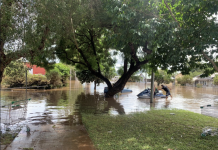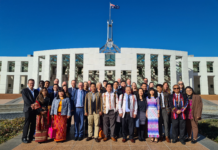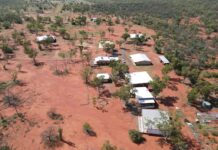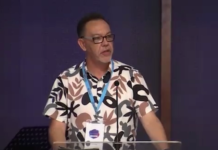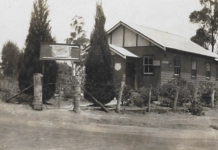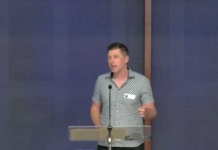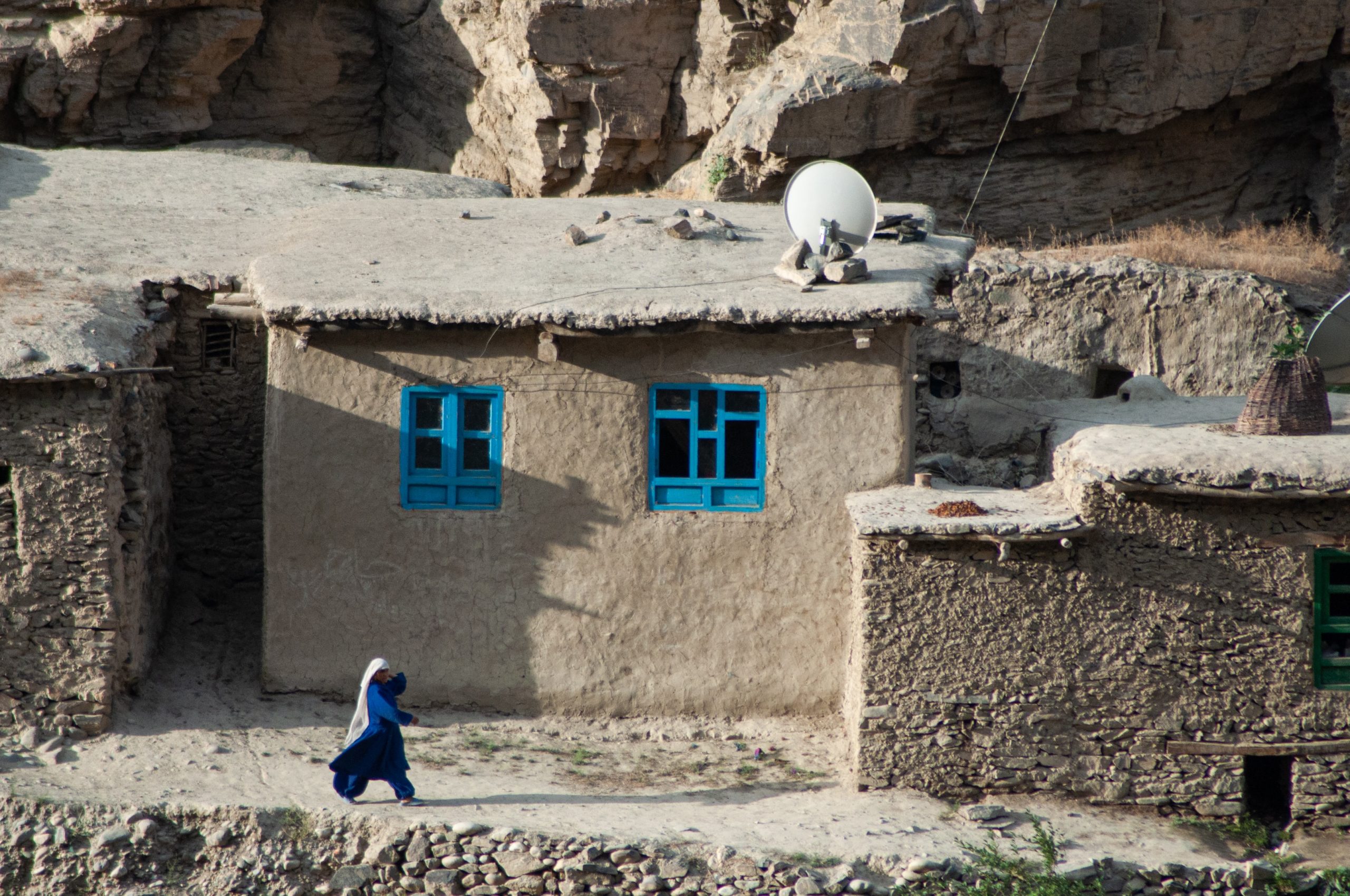When news of the Taliban takeover in Afghanistan broke across Australia last week, God’s people responded quickly. More than 250 Baptist World Aid friends came together on the evening of 19 August to pray for Afghanistan in a moving display of Christ’s love and compassion.
Those prayers reflected the overwhelming sentiment within Baptist World Aid, underscoring a concern for the ongoing fear, desperation, and uncertainty that life under Taliban rule may bring. In response, Baptist World Aid has launched an appeal to assist Christian partners in Kabul and the region to care for the people of Afghanistan.
‘On rare occasions there are moments of human tragedy that break through the never-ending humanitarian crises that we see,’ said Peter Keegan, Baptist World Aid’s Director of Advocacy.
‘Afghanistan is one of those moments.’
Australia’s love for the people of Afghanistan became evident during Baptist World Aid’s Pray for Afghanistan event 19 August. While many people from across the country joined in prayer, some key themes emerged. (Please consider these prayer points and news details in your own prayers for Afghanistan.)
Peace (shalom) & protection across the land, especially with evacuation attempts
Afghanistan has been a protracted crisis that has cost countless lives. Watching a country so devastated by conflict for so long is heartbreaking and well beyond the imaginings of most Australians who know no conflict within our borders, who enjoy religious freedom and equality. Prayers for peace—both peace in the conflict and God’s peace—and for hope, protection and for those who live in fear emerged especially.
The airport, too, has become a scene of desperation with at least 20 people killed in and around the airport grounds, both from gunfire and stampedes as people try to board evacuation flights, according to a NATO spokesperson.
Safety for women and girls
The safety of women and girls under Taliban rule has long been a concern for many. The Taliban has said that women will now enjoy ‘greater freedoms’ – but there is a caveat.
‘We are going to allow women to work and study. We have got frameworks, of course. Women are going to be very active in the society but within the framework of Islam,’ Taliban spokesperson Zabihullah Mujahid, said during a press conference.
What exactly that means remains unclear. During previous Taliban rule, women had to adhere to a strict dress code, were unable to study or work, and girls were forced into marriage.
‘The fear as to what the Taliban may do is not just driving conversation in the humanitarian or development sector. It’s also occupying the conversations in our own communities here and throughout the world.,’ Keegan said.
‘Some of the worst predictions may prove to be wrong. The Taliban may have reformed. But sadly, I’m not sure that’s a likely outcome,’ he said.
Australian Afghans with family still in Afghanistan
There is a large Afghan diaspora in Australia, the vast majority (at least 87 per cent, according the 2016 census) coming since 1996 and the rise of the Taliban and subsequent conflict. Many have family still living in Afghanistan.
During the prayer gathering, many prayed that families could be reunited in the safety of Australia and for God to grant comfort and peace to Afghan Australians concerned about their loved ones in Afghanistan.
Courage for Christians and other minorities in Afghanistan
With Christians in Afghanistan—including missionaries, Bible translators, those working with aid organisations and others—as well as minority groups of other religions and ethnicities, there is obvious concern about how the Taliban as a hardline religious-political movement will treat those who don’t adhere to strict Sharia law.
But many believe the church grows amidst persecution, and so there were prayers for both the church to expand, for people to call out to God and enter into a relationship with Jesus. And in a loving display of Romans 12:14 – ‘Bless those who persecute you’ – many offered prayers for the Taliban, for their hearts to soften, and for them to come to know Jesus.
Wisdom for international leaders to respond with justice and compassion
Without question, the role of world leaders during this crisis is crucial. Their response over the coming days and weeks may well set the tone for international relations, humanitarian access, and diplomacy for some time to come.
There was prayer for governments to be compassionate and not just political in their response – especially amid growing concern that the Taliban takeover will result in a breeding ground for global terrorism and a new wave of migration.
Sustained prayer and compassion from God’s people for Afghan refugees wherever they end up
Many prayers reflected concern over the downtrodden, the oppressed, for those seeking refuge, and for orphans. As with other prayers, supporters prayed for peace, comfort, and for God to be a light in the darkness. And many committed to continuing to pray in their churches and with their families for the people of Afghanistan.
Ongoing global concerns
More than 26,000 Australians served in Afghanistan between 2001–2014. Forty-one were killed and 261 wounded.
It was clear that Afghanistan struck a chord in the hearts of Australians that many other crises have not, cutting through to the public consciousness far more quickly and intensely than most others.
The world is in the grip of COVID-19, most of Australia is in lockdown, the Tigray region of Ethiopia is facing a heartbreaking starvation crisis as more than two million people have fled violence; Haiti—still largely recovering from the devastating 2010 earthquake—has suffered another earthquake that left more than 2,000 people dead and is now suffering through Tropical Storm Grace which has greatly impeded aid efforts.
Myanmar’s coup in February, which ousted democratically elected Aung San Suu Kyi, has left more than 1,000 civilians dead while the country deals with the 363,000 COVID cases and almost 14,000 related deaths. And Rohingya refugees who fled Myanmar in 2017 have been washed from their camps in Bangladesh by monsoonal storms and Indonesia has become the epicentre of COVID in South Asia.
But Afghanistan has dominated the news and people’s thoughts.
Perhaps it should be no surprise that the plight of Afghanistan has cut through into the Australian consciousness the way it has. Afghanistan has been part of the Australian zeitgeist for a long time.
Australia has been physically and emotionally invested in the recent Afghanistan conflict for 20 years. More than 26,000 Australians served in Afghanistan between 2001–2014. Forty-one were killed and 261 wounded.
The mental health of veterans, including their drastically high suicide rate, and questions over war crimes and tactics used, have become all too familiar aspects in Australia’s involvement in what has become known as the ‘Longest War’.
But despite most Afghanis settling in Australia in recent years, Australia has an interesting cultural relationship with Afghanistan. In the late 1800s, thousands of Afghani camel drivers(and Pakistani, Egyptian, Turkish, and Indian) made their way to Australia to lead camel trains across the outback, their expertise obvious and much needed to deliver supplies from cities to remote towns and stations and to act as guides for explorations.
Even though cameleers came from several countries, they were known collectively as ‘Ghans’, and their legacy is acknowledged by the famous Ghan train that runs between Adelaide, Alice Springs and Darwin. Australia’s large Afghan diaspora is evidence of the long-standing cultural relationship between Afghanistan and Australia.
. . . it’s sadly very likely we’ll still be grappling with a major humanitarian crisis in Afghanistan five years from now. . .
It is imperative that Australia— along with the rest of the world—acts quickly to ease the suffering and despair of the Afghan people. Steps must also be taken to comfort those with Afghan heritage and loved ones who have remained in Afghanistan.
‘Perhaps the long slow journey of peace with justice will begin. But if that doesn’t happen, it’s sadly very likely we’ll still be grappling with a major humanitarian crisis in Afghanistan five years from now, and even longer, as Syria’s experience of 10 years attests,’ Keegan said.
‘I’m so proud that we could have an immediate response with prayer and advocacy that has met this moment and provided helpful ways for people to channel their lament into action. And I am equally proud that we can launch this appeal for the people of Afghanistan,’ he said.
As the world looks on with deep concern and troubled hearts, it would be well to consider the prayer below, which one of Baptist World Aid’s supporters prayed last week:
‘Father, we thank you that you are bigger than the chaos. Thank you that you can provide abundantly and do so much more than we ask or imagine. We pray for peace, protection, and restoration in Afghanistan. In Jesus name.’
How you can help families in Afghanistan
Step 1. Give to the Afghanistan Crisis Appeal – Hundreds of thousands displaced in Afghanistan. Your gift now can make a difference.
Step 2. Take action for Afghanistan – Call on your local Member of Parliament to take action for Afghanistan.


